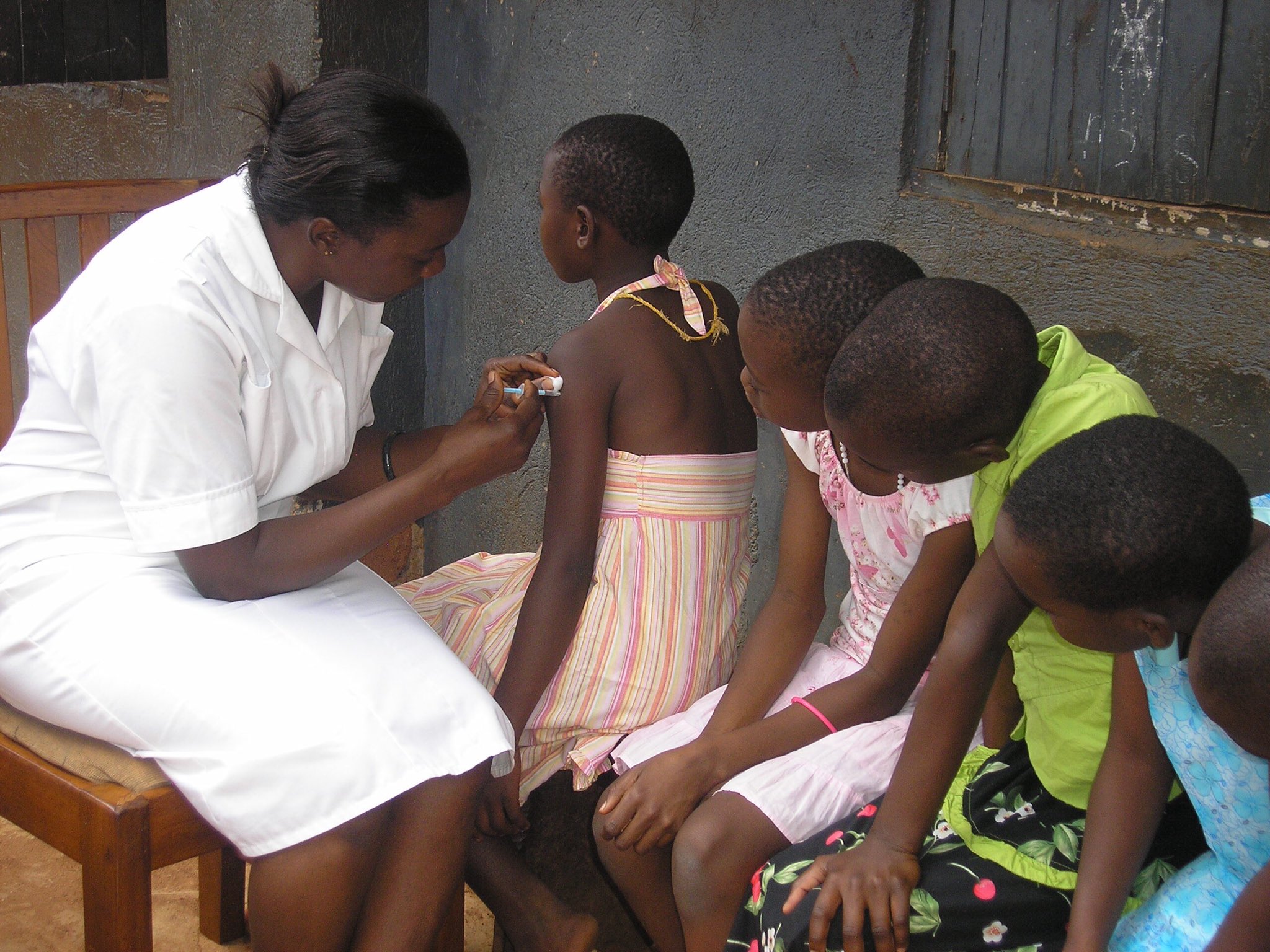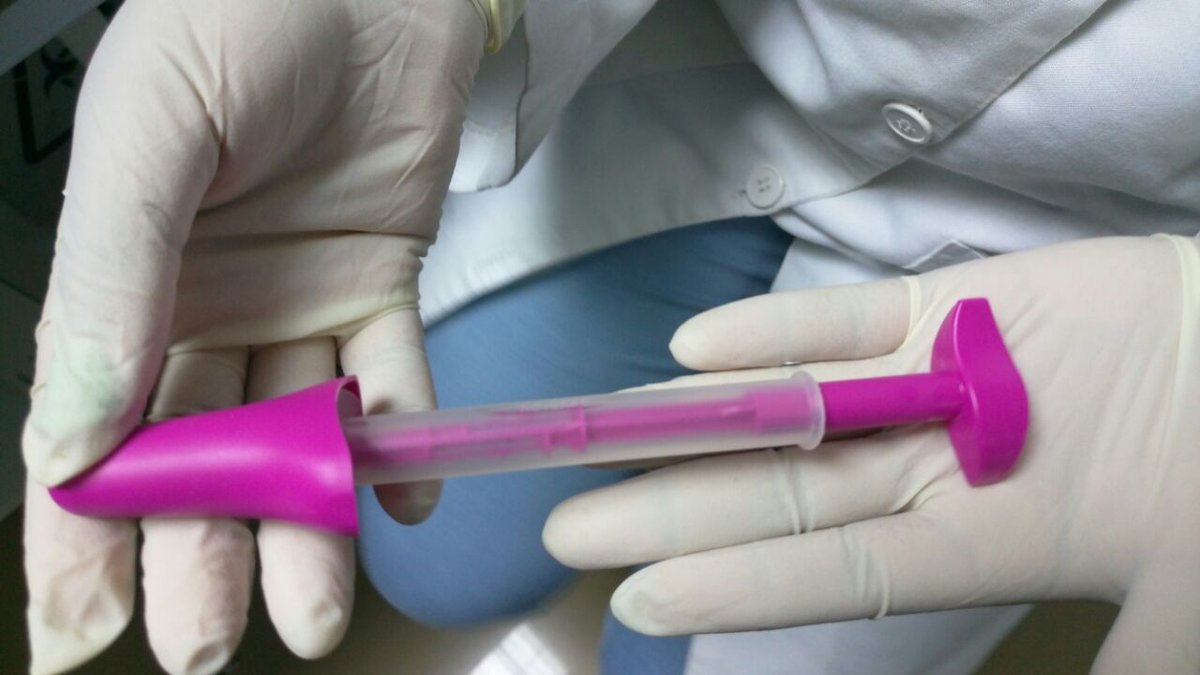
By Okeya John and Davidson Dyabahika
In Uganda, just like across the globe, cervical cancer remains a significant matter of grave public health concern. Locally, the disease is heightened by limited access to screening, particularly for the rural population. A new three-year retrospective study that sought to determine health worker experiences using genetic constitution (DNA) for screening human papillomavirus (HPV) - the virus that causes cervical cancer - using GeneXpert machines has revealed that improved screening is essential towards staving high incidences of the disease.
According to the World Health Organization (WHO), the human papillomavirus is a family of over 200 known viruses that are sexually transmitted and common among all sexually active people. The infection normally produces no symptoms and resolves on its own without therapy. Although the WHO acknowledges that the body controls the infection in 90 per cent of people, they are quick to warn that persistent HPV infection with high-risk strains causes cervical cancer, and is also associated with cancers of the vulva, vagina, mouth, throat, penis, and anus.
WHO recognized cervical cancer in 2018 as one of the most ‘serious threats to women's lives’. The following year (2019), HPV was found to cause an estimated 620,000 cancer cases in women and 70,000 in men. In 2020, at least 340,000 women died from the disease worldwide. While back home in Uganda, the country has one of the highest case incidences in the world, standing at 54.8 per 100,000 people. The estimates also show that 6,959 women are diagnosed and 4,607 die of the disease in Uganda each year, although the cancer is preventable.
Prevention is enhanced through prophylactic vaccination, a mechanism intended to stimulate the immune system to recognize and fight the virus before it causes an illness. Though HPV screening and treatment of pre-cancer lesions is also a known effective remedy. Now, in the new study, the public health researchers screened data from 66 GeneXpert labs between March 2021 and May 2023 to determine the DNA distribution and health worker experiences with human papillomavirus testing using GeneXpert technology in Uganda.
GeneXpert is a DNA molecular testing tool launched by the Ugandan government in 2019. The method employs fluorescence to detect the presence of high-risk (or oncogenic) human papillomavirus strains that affect the genital area.
According to the new study, conducted by Harriet Nakigozi, Paul Mukama Ategyeka, Susan Nabadda, and Rawlance Ndejjo from Makerere School of Public Health (MakSPH), titled: Positivity rates, trends, and observations of health workers on human papillomavirus screened using genexpert in Uganda: a three-year retrospective cohort study and published in the BMC Cancer Journal on March 25th, 2024, screening is effective in curtailing the high disease incidences, although persistent glaring gaps undermine efforts to stem the HPV health risk.
“Generally, there was low awareness of cervical cancer or HPV infections among people and community health workers. There were lots of misconceptions about cervical cancer-related infections despite the perceived knowledge. Thus, few women turned up for screening, which in turn, reduced the chances of prevention since HPV screening is a prevention method for cervical cancer. This resulted in underutilization of the GeneXpert machine, hence expiration of consumables or supplies such as cartridges.” The study report reads in part.

After their introduction, in-between 2021 to 2023, GeneXpert machines were used to conduct a total of 24,497 HPV tests across Uganda. The study revealed a finding of a positivity rate of 39.1 per cent, that highlight a high prevalence of HPV infections among women. The most commonly detected HPV genotypes were the high-risk types (65%), followed by HPV 18/45 (18%) and HPV 16 (17%). Additionally, 15 per cent of positive cases showed multiple HPV genotype infections.
The retrospective cohort study used quantitative and qualitative research approaches and was completed at all 66 diagnostic genexpert locations in Uganda that diagnose HPV. HPV data was retrieved from LabXpert and evaluated. A total of seven focus group discussions and five key informant interviews were conducted. While the study sample consisted of all women who checked for HPV using the GeneXpert machine across the country at GeneXpert facilities between March 2021 and May 2023.
These patients included individuals who were documented in labxpert as having undergone HPV screening. According to the researchers, the timeframe corresponds to when HPV screening with the GeneXpert machine began, first with only 10 GeneXpert locations, which were later expanded to other regions in Uganda.
The researchers discovered that when women become infected with HPV or have health problems, they usually seek care from informal settings such as traditional healers, and when their condition worsens, that is when they are referred to the hospitals. However, according to the study, they could have avoided the condition if they had sought screening services earlier.
“Most of the health workers were knowledgeable of the HPV symptoms. Nurses could identify manifestations of HPV or cervical cancer disease but could not relate their theoretical knowledge to practice. However, there was a lack of uniform understanding of cervical cancer guidelines even among those who had trained,” The study confirmed.
The study further found health workers to be at risk of high work load due to the wide variation in frequency of cases seen, while still, not all sick or HIV positive patients sought care at health facilities. The care seeking practices were also lacking or inadequate due to the challenge of medical pluralism – a conception for the blend of diverse range of medical beliefs, traditions, and practices, that individuals may use to address their health needs – among people in various communities, where communication network determined their choice of care seeking.
The common practice of medical medical pluralism and care seeking from traditional practitioners is attributed in the study to cultural beliefs, high cost of care at health facilities, long waiting hours, and perceived poor quality of care. To the researchers, this requires devising strategies to improve cervical cancer awareness, engaging traditional healers and community stakeholders to address misconceptions and build trust in the health system.
The study also called for regular training and mentorship to strengthen healthcare providers’ competencies to address the inconsistencies in health workers’ knowledge about cervical cancer guidelines, with some providers demonstrating inaccurate information and practices, a knowledge gap that limits their ability to appropriately screen and diagnose HPV. This can then be augmented by comprehensive cervical cancer communication at the individual, family, and community levels with mass media campaigns and community outreach by the health workers to dispel myths and shape positive health practices around cervical cancer prevention.
“Moreover, the variation in frequency of seeing cervical cancer cases makes it difficult for providers to gain and maintain expertise. But the burden of cervical cancer regionally remains high. Thus, health systems factors like staffing and resources for screening must be strengthened. With increased support with resources such as trained personnel, laboratory supplies and increased health education on prevention of HPV, HPV screening services can be easily accessed even in rural areas of Uganda because of the availability of genexpert machines that can easily be used to screen for HPV.” The study recommends.
Please find the scientific study here.

